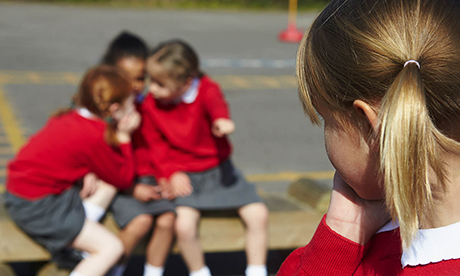Teachers from schools across Ireland are concerned that Catholic schoolchildren are being bullied for practicing their religion as they appear ‘old fashioned’ or ‘out of the mainstream culture’.
Most schools in Ireland are Catholic schools, and close to 80% of the population describe their religion as Catholic according to the 2016 Census.
Yet, a growing number of people do not practice the religion. Many may attend Christenings and Communions simply as it is part of Irish culture rather than any genuine belief in the practice.
According to Professor James O’Higgins Norman, this has led to practising Catholics being singled out for bullying in schools more than non-religious students.
As reported by The Irish Times, Professor O’Higgins Norman shared research from Dublin City University (DCU) Anti-Bullying Centre, which stated that Religion teachers had noticed bullying towards practising Catholics.
Norman said that it was vital that we “promote understanding of difference, that difference is the norm, a good thing, and no two kids are the same.”
Prof O’Higgins Norman and his academic team were addressing the Oireachtas Committee on Education, which is examining the issue of school bullying and its effects on mental health.
The committee heard that physical appearance was “the top reason for being bullied”.
“It is well established in research that negative childhood experiences have a negative effect on the development of a child, particularly when the bullying is related to identity. Our research shows that school principals understand and recognise this,” Prof O’Higgins Norman said.
However, the DCU submission also noted that only 51 per cent of schools have appointed a specific staff member to investigate and tackle bullying. It called for greater transparency regarding how cases are reported and dealt with in individual schools.
Fianna Fáil Senator Fiona O’Loughlin proposed a national bullying database whereby schools would record incidents and types of bullying. This would identify how often Catholic schoolchildren were being bullied based on their beliefs.
Prof O’Higgins Norman said he would support such a database that tracked bullying activity because “having good quality data allows us to make informed decisions about the initiatives that we use and about how effective they are”.
Dr Mairéad Foody noted that cyber-bullying was still less prevalent than more traditional forms, but it could have a more severe impact on victims.
“One incident of cyber-bullying might be enough for somebody to feel so isolated and alone that their mental health is under severe pressure. Whereas offline bullying might continue for a little bit more time before they would need to seek help,” she said.
Prof O’Higgins Norman said parents and teachers were also “rightly concerned” about cyber-bullying. He noted improvements in online moderation were increasingly reliant on artificial intelligence designed to identify bullying before it was seen.
“[However] we don’t have a full picture of how well it’s working because the metrics are within companies, and access to them is quite limited,” he said.
Sources
Additional readingNews category: World.




